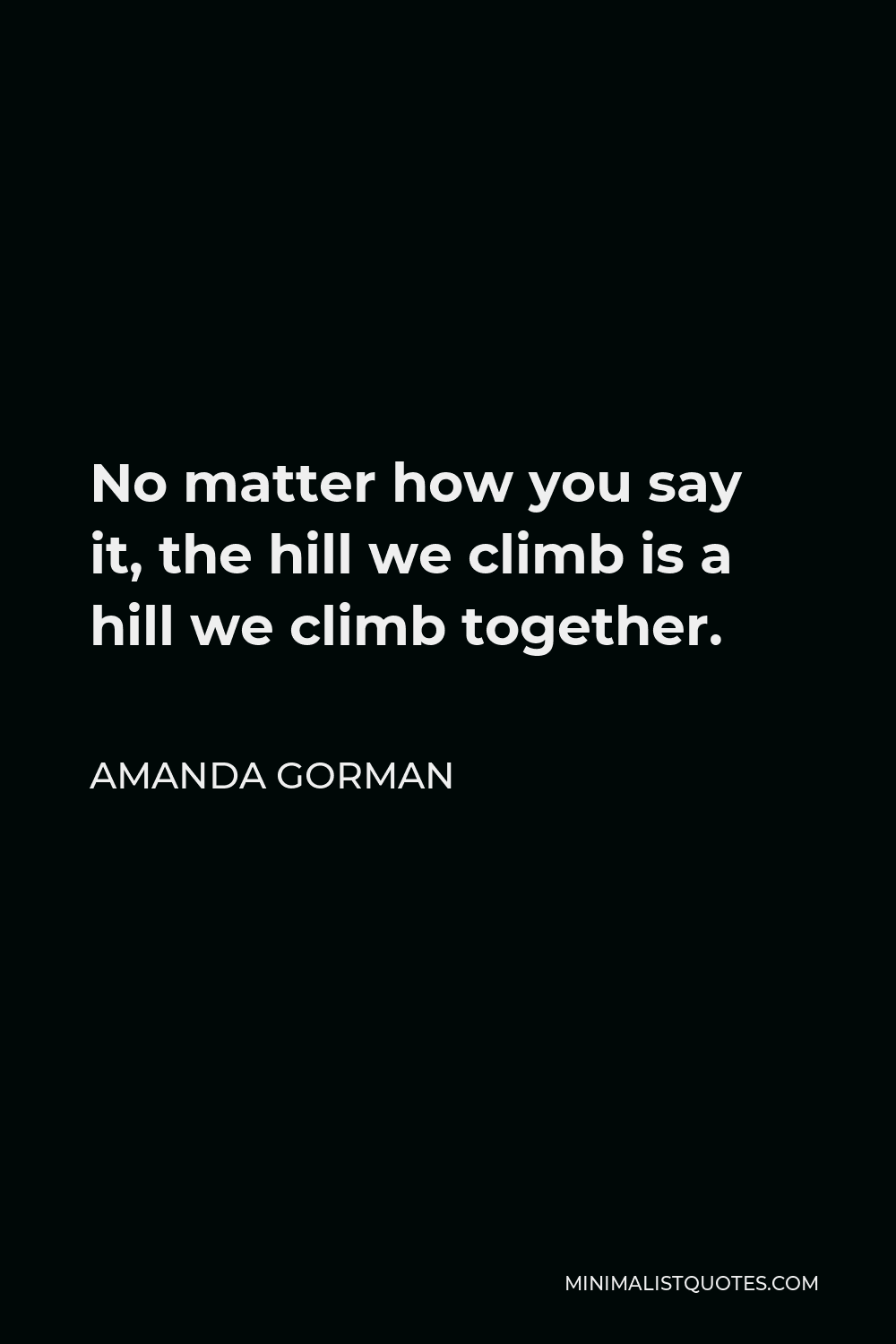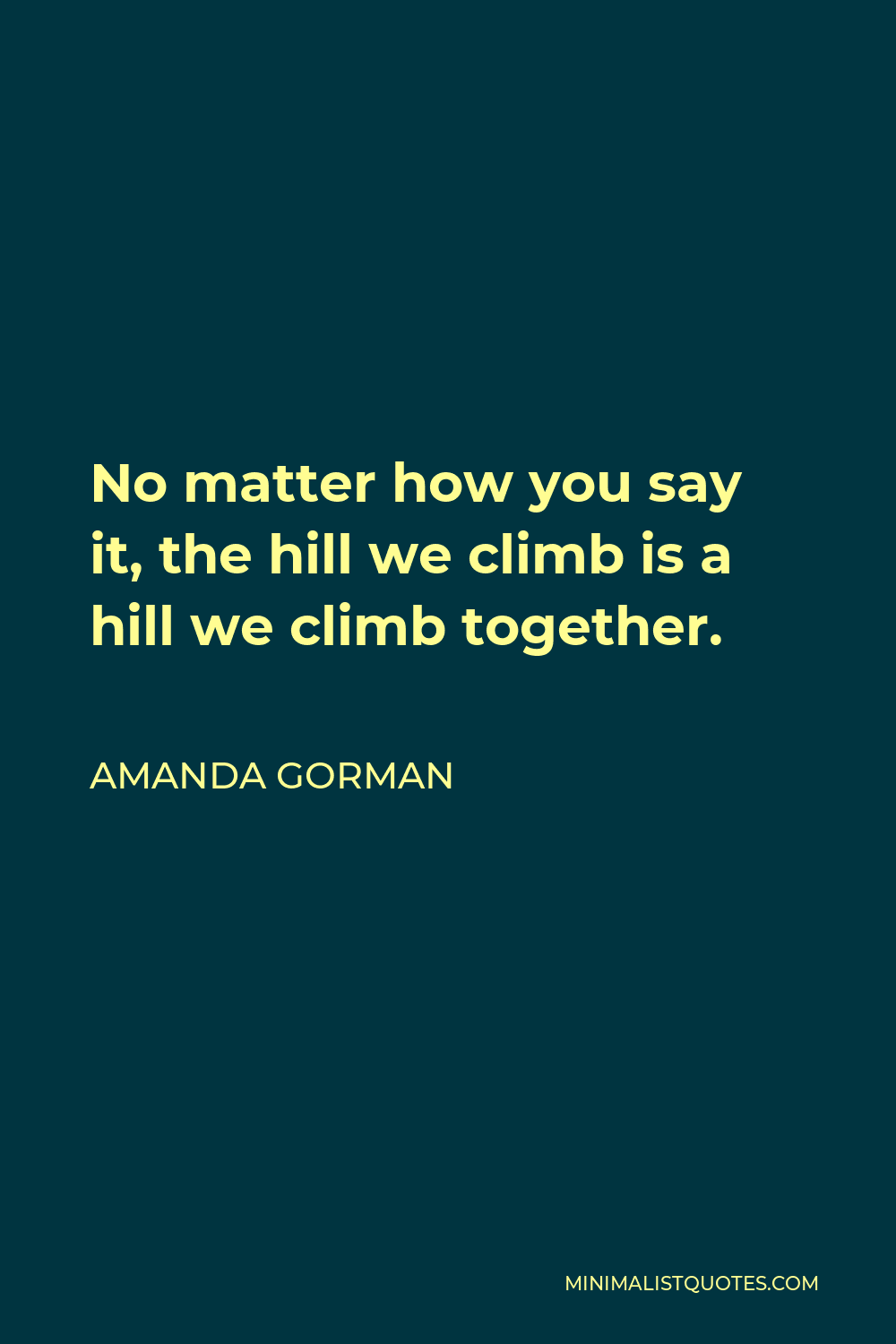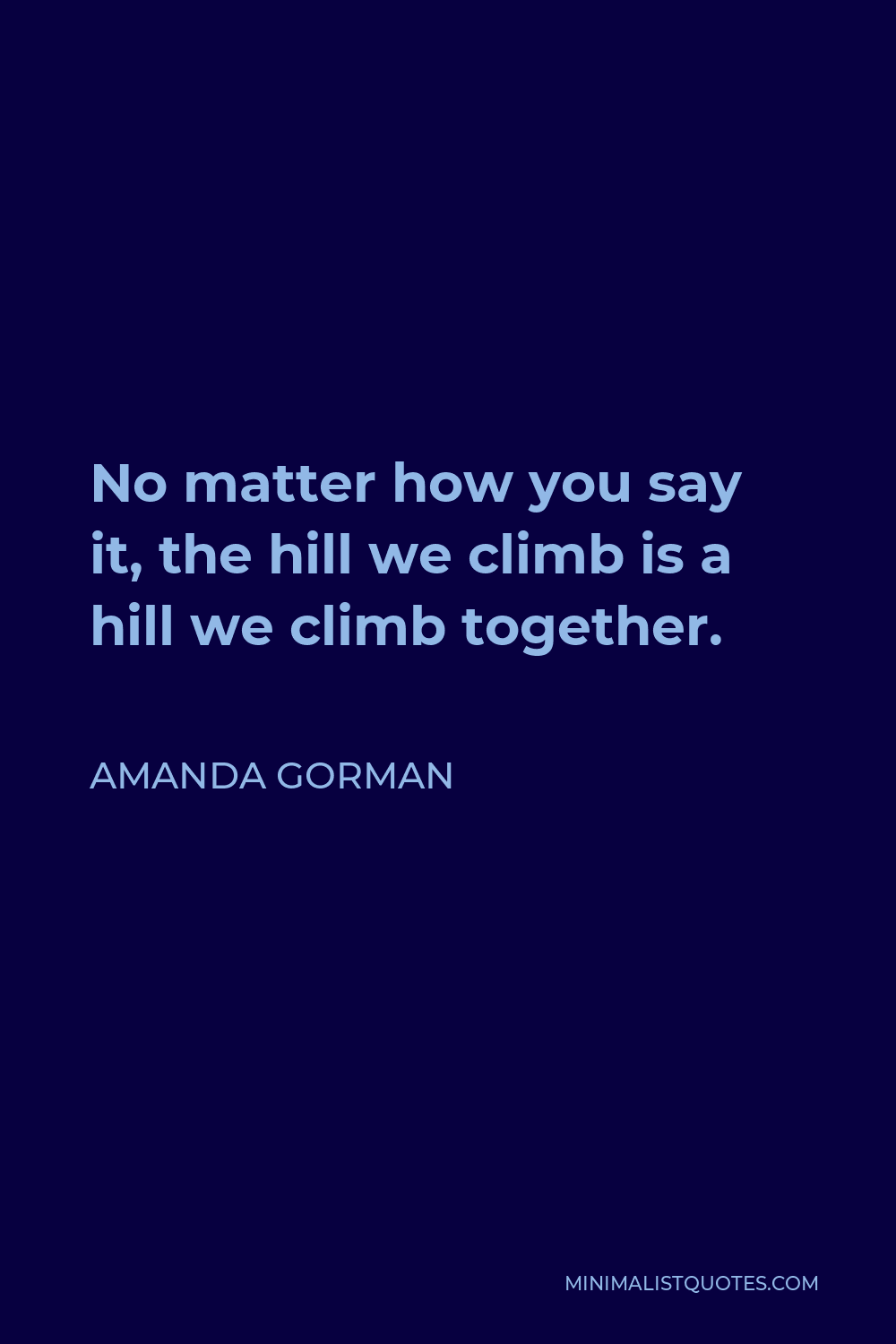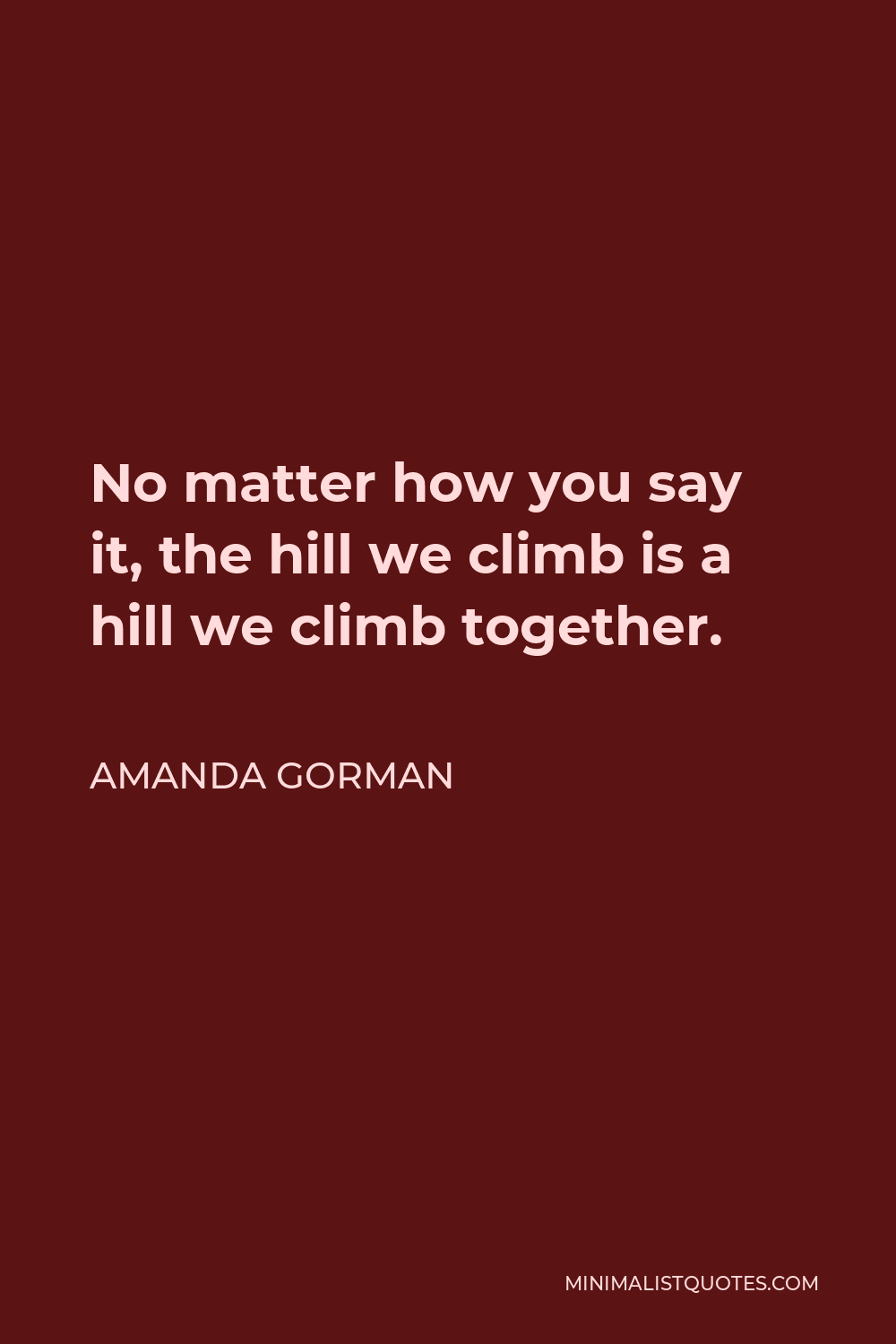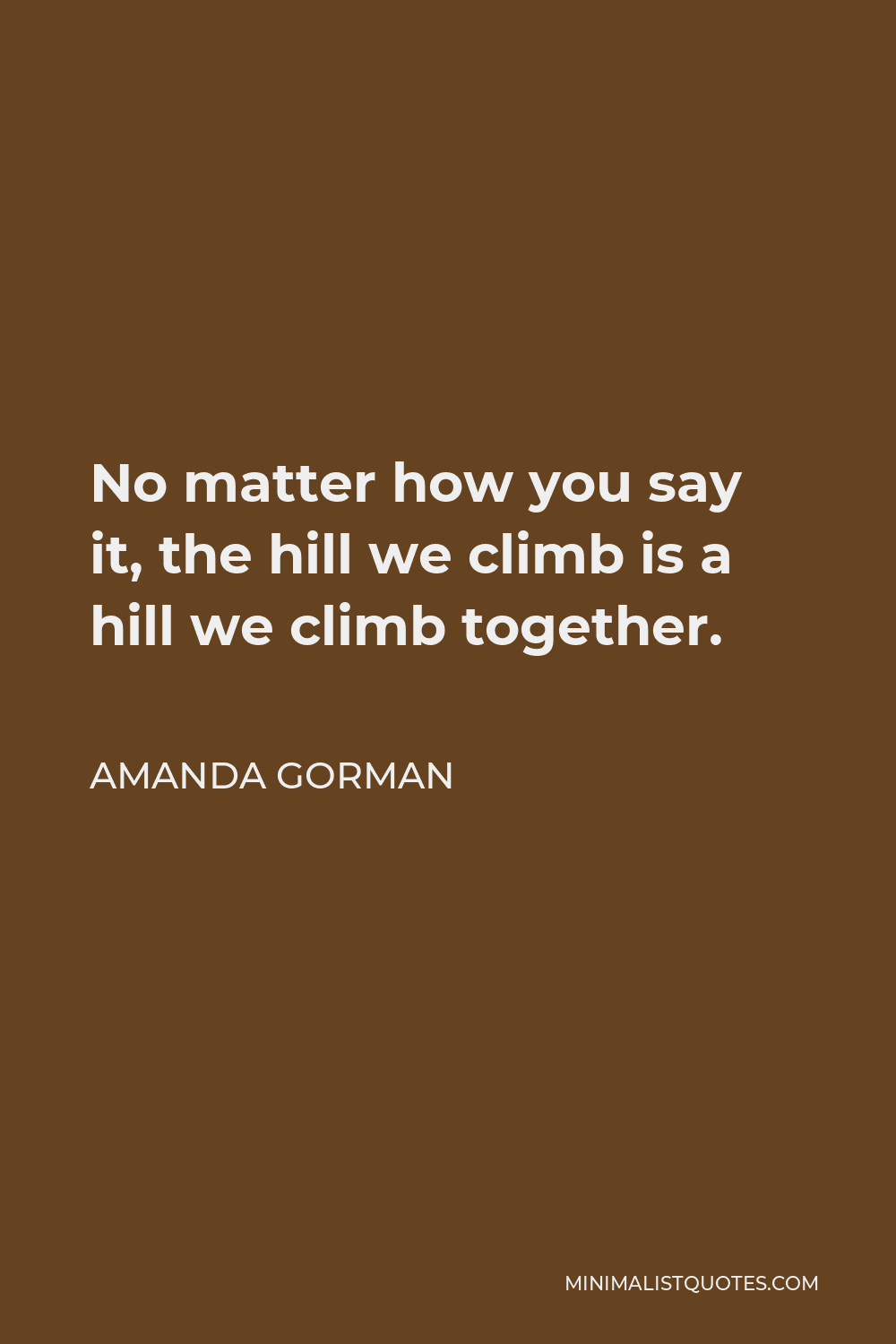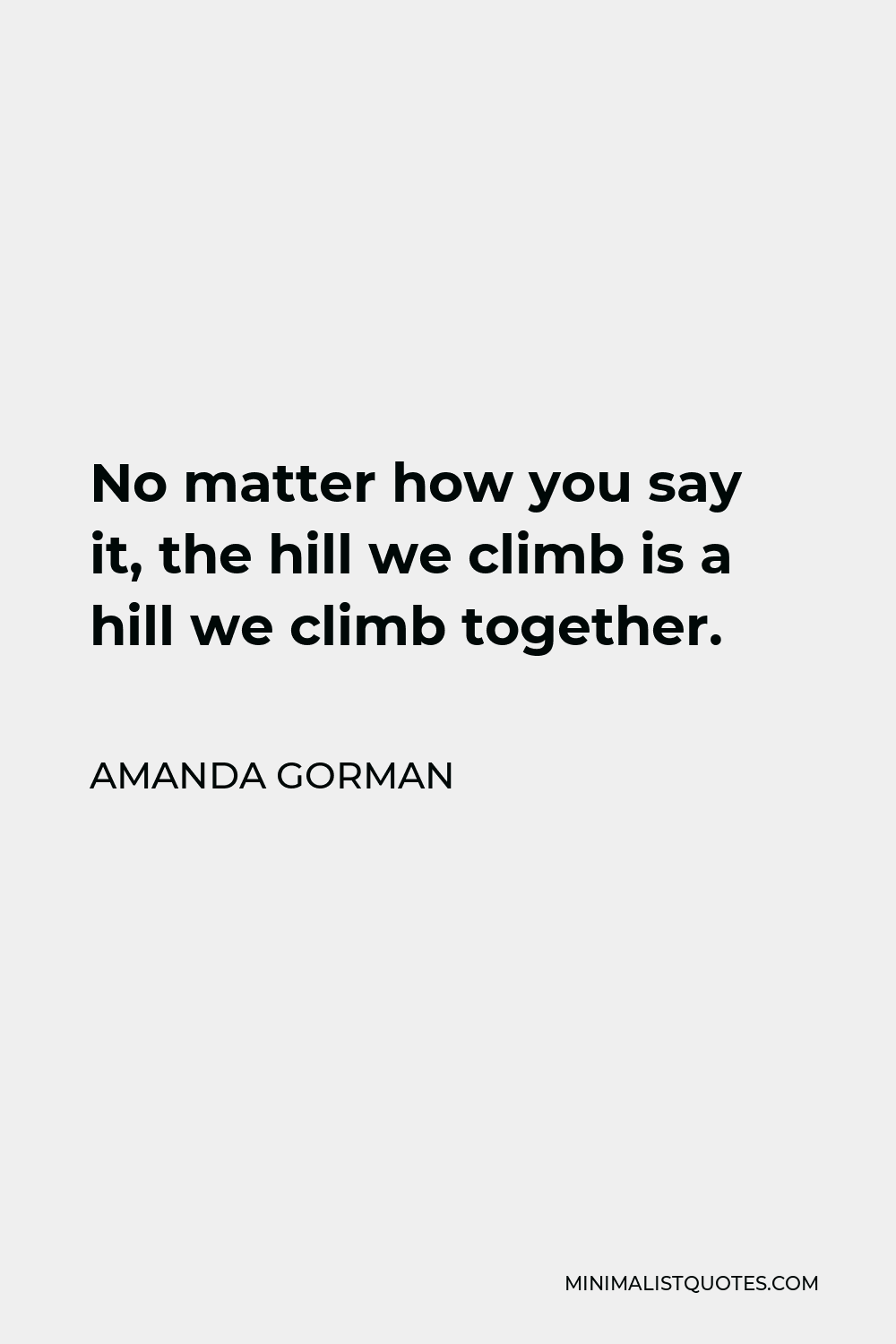If a woman doesn’t give herself permission, who will?
AMANDA GORMANNo matter how you say it, the hill we climb is a hill we climb together.
More Amanda Gorman Quotes
-





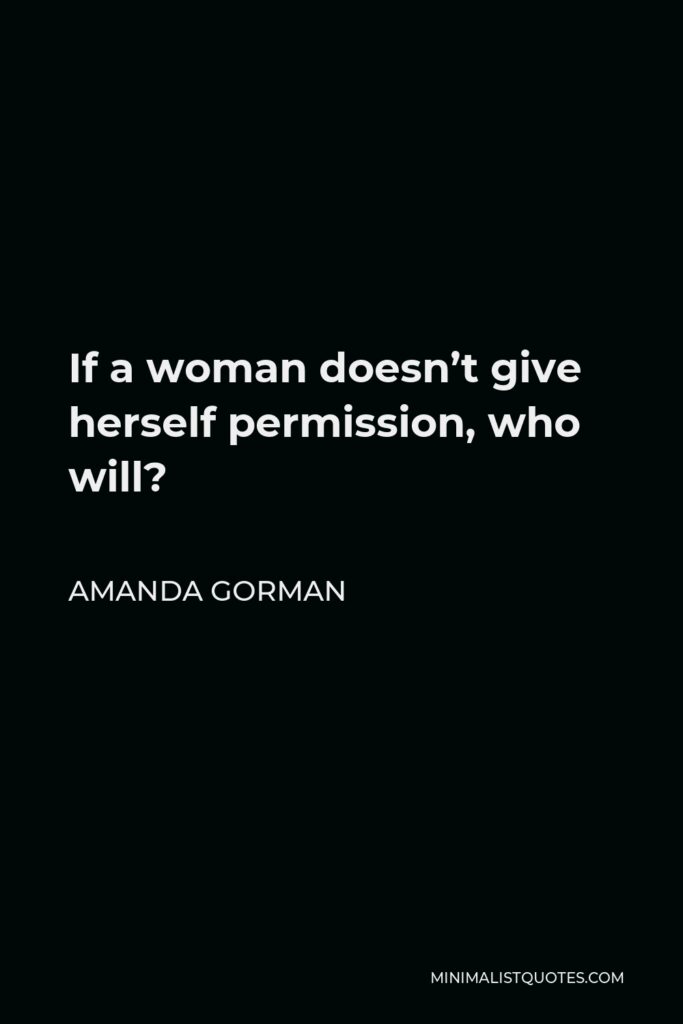

-





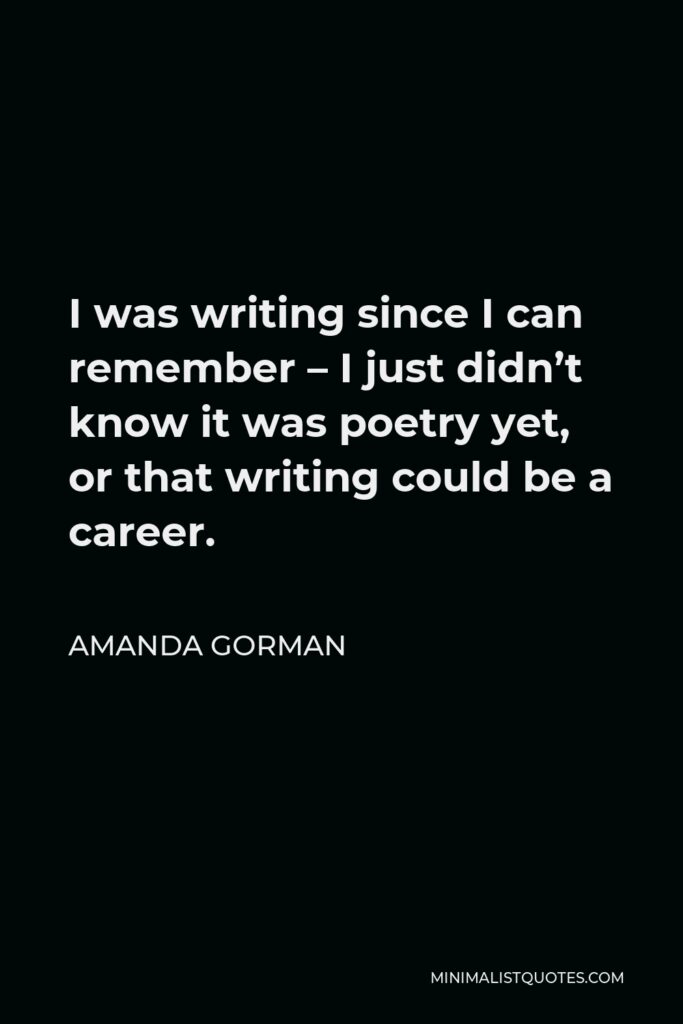

I was writing since I can remember – I just didn’t know it was poetry yet, or that writing could be a career.
AMANDA GORMAN -





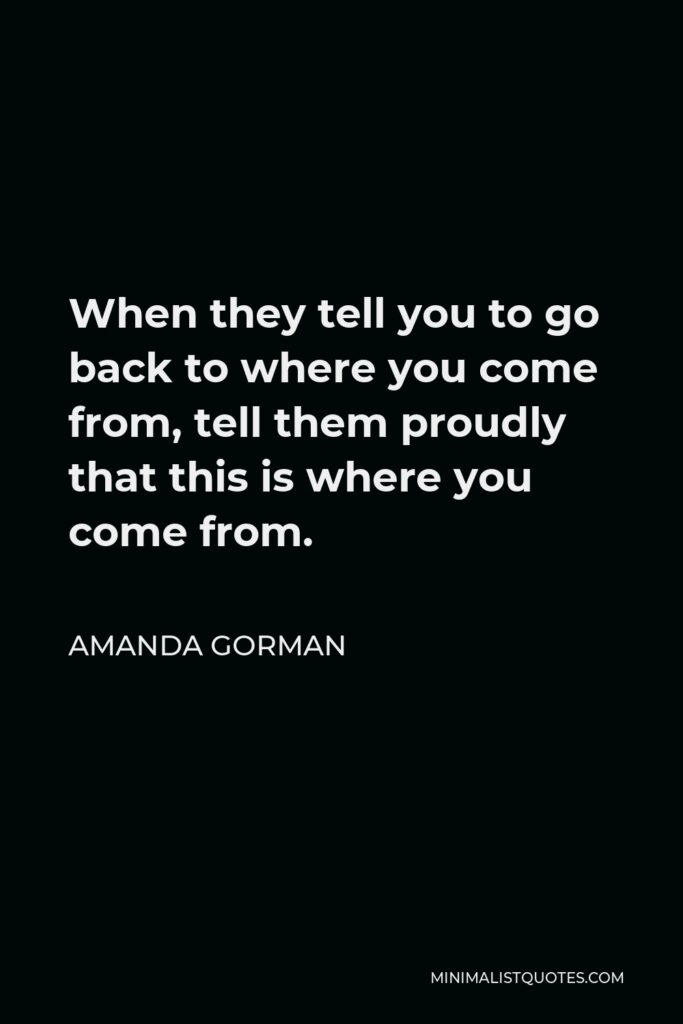

When they tell you to go back to where you come from, tell them proudly that this is where you come from.
AMANDA GORMAN -





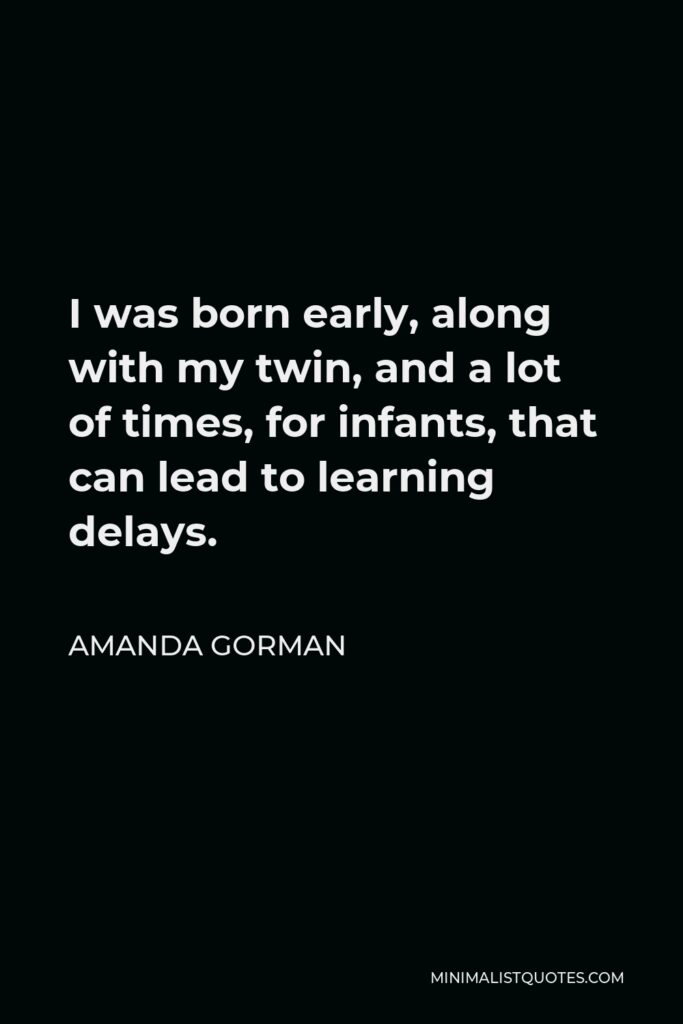

I was born early, along with my twin, and a lot of times, for infants, that can lead to learning delays.
AMANDA GORMAN -





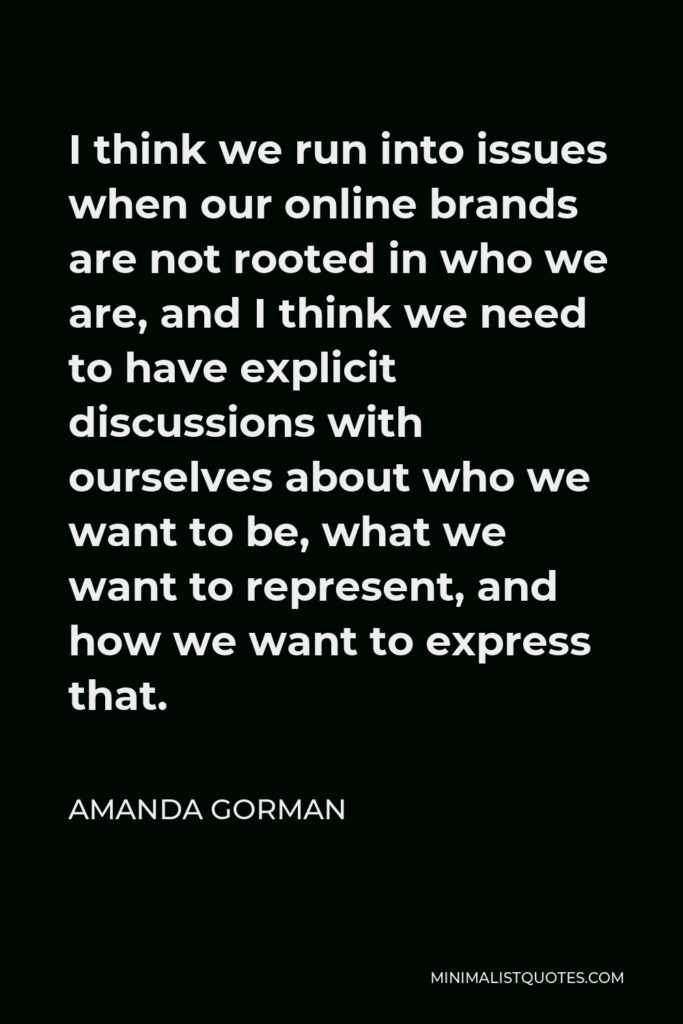

I think we run into issues when our online brands are not rooted in who we are, and I think we need to have explicit discussions with ourselves about who we want to be, what we want to represent, and how we want to express that.
AMANDA GORMAN -





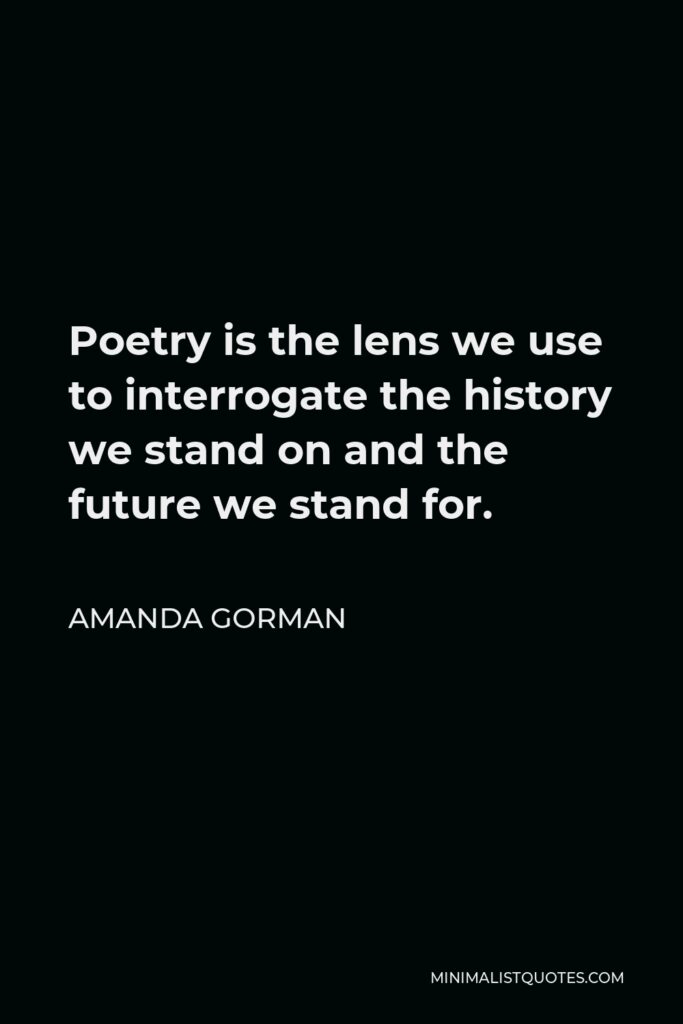

Poetry is the lens we use to interrogate the history we stand on and the future we stand for.
AMANDA GORMAN -





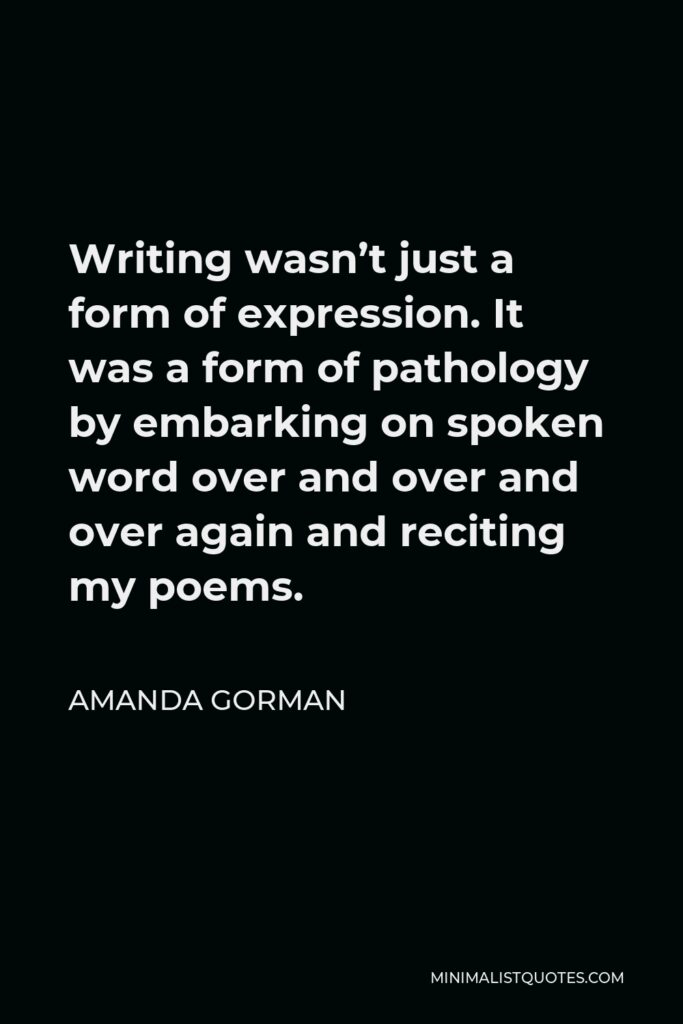

Writing wasn’t just a form of expression. It was a form of pathology by embarking on spoken word over and over and over again and reciting my poems.
AMANDA GORMAN -





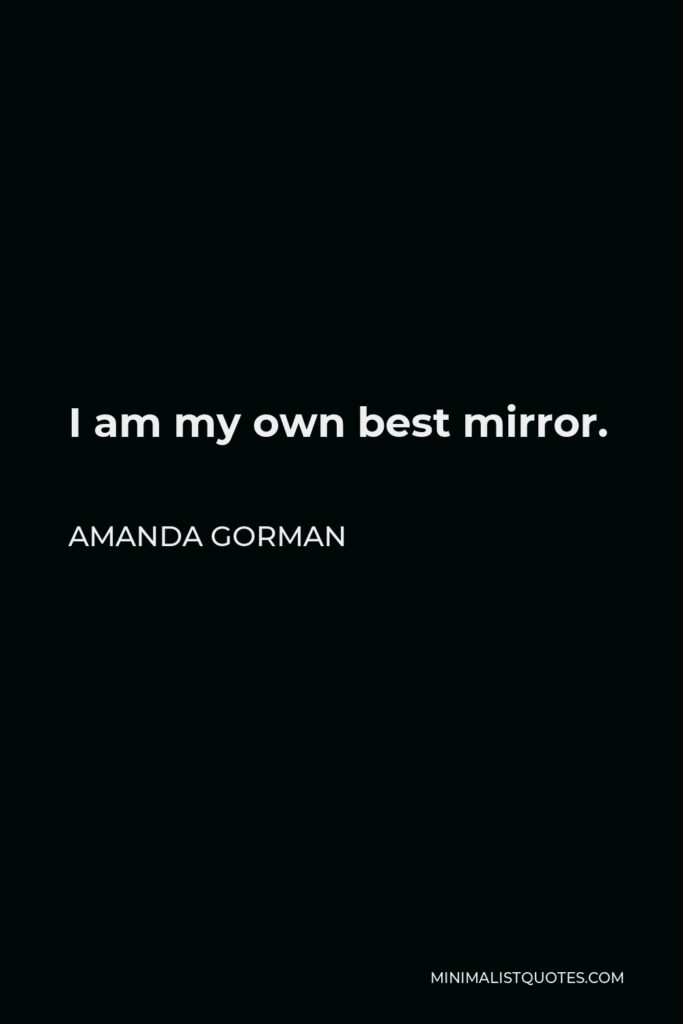

I am my own best mirror.
AMANDA GORMAN -





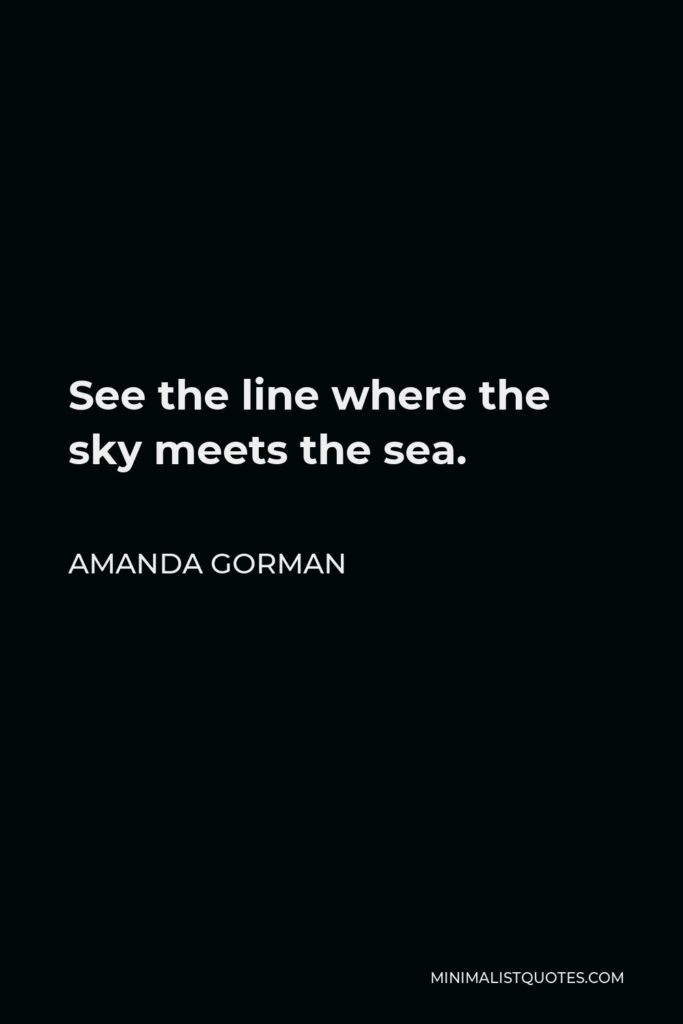

See the line where the sky meets the sea.
AMANDA GORMAN -





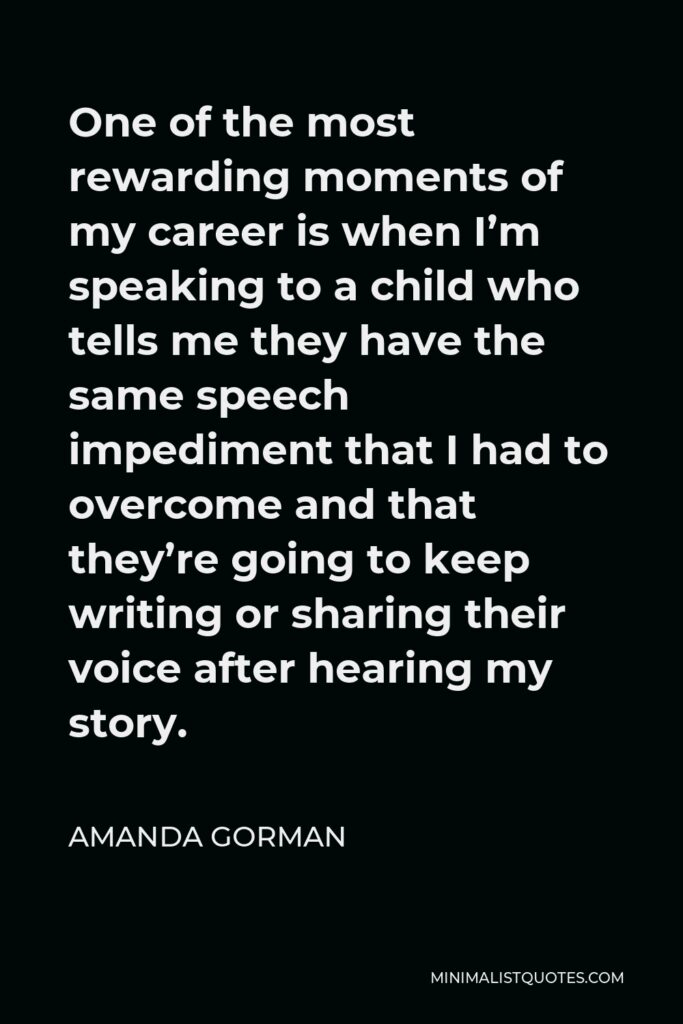

One of the most rewarding moments of my career is when I’m speaking to a child who tells me they have the same speech impediment that I had to overcome and that they’re going to keep writing or sharing their voice after hearing my story.
AMANDA GORMAN -





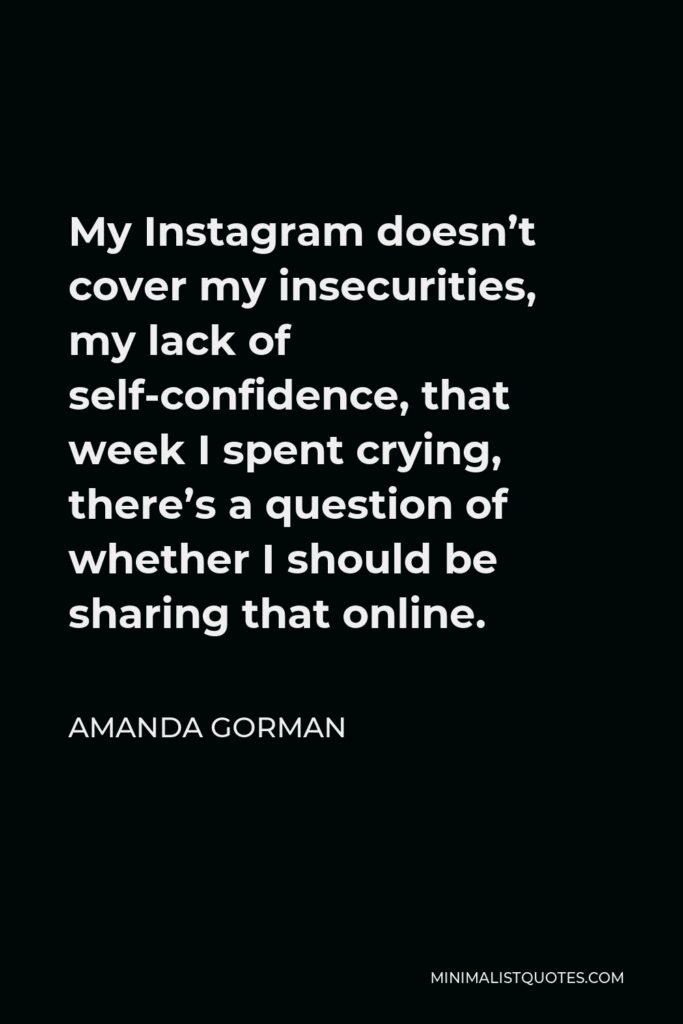

My Instagram doesn’t cover my insecurities, my lack of self-confidence, that week I spent crying, there’s a question of whether I should be sharing that online.
AMANDA GORMAN -





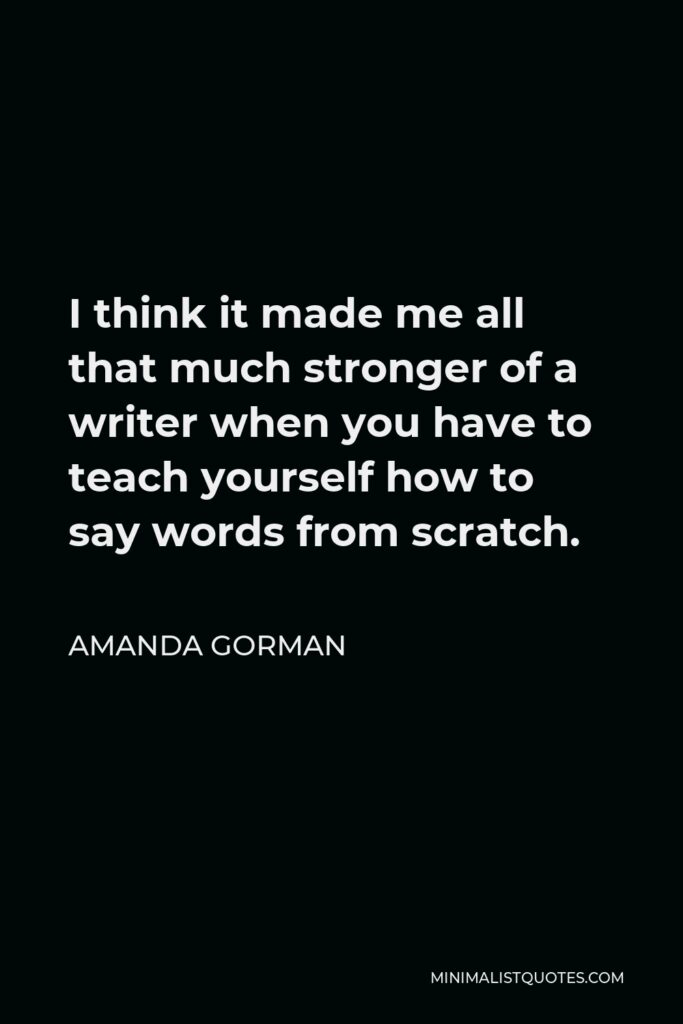

I think it made me all that much stronger of a writer when you have to teach yourself how to say words from scratch.
AMANDA GORMAN -





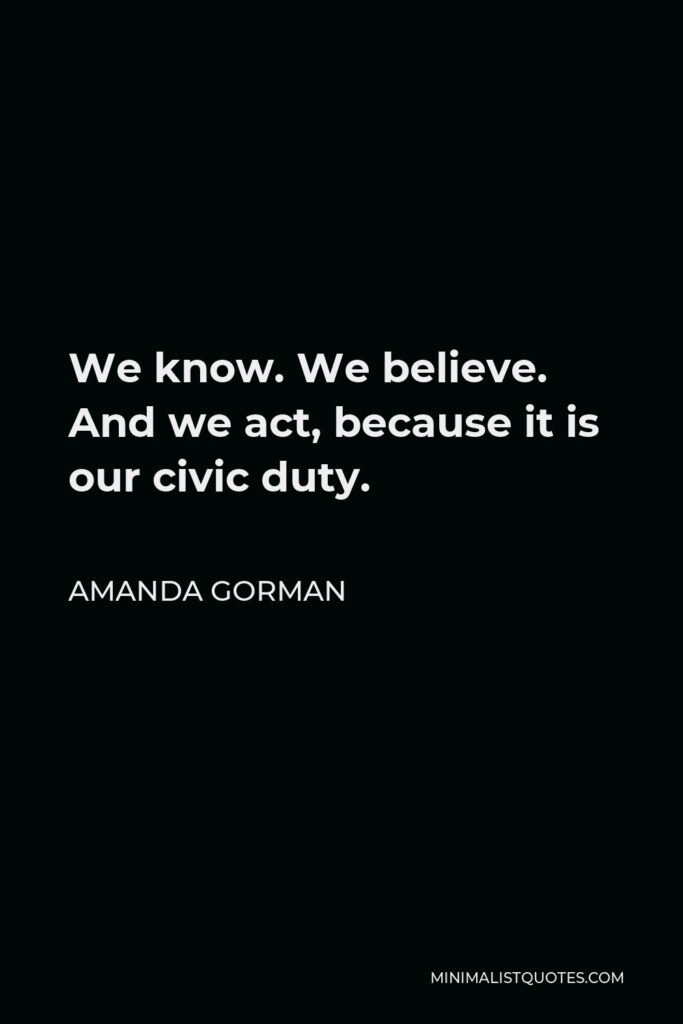

We know. We believe. And we act, because it is our civic duty.
AMANDA GORMAN -





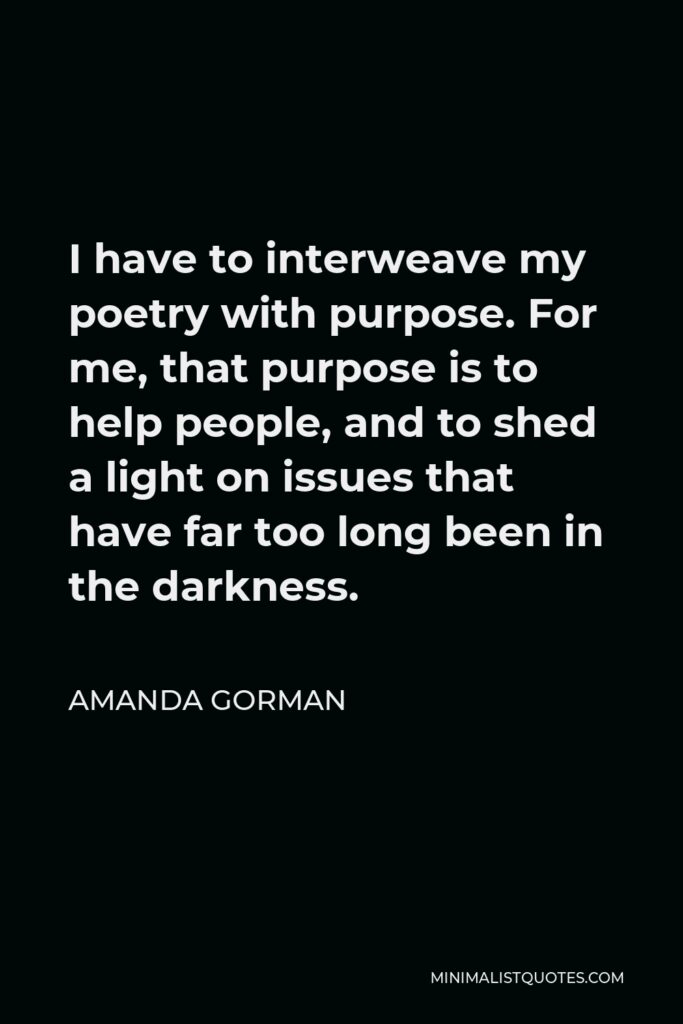

I have to interweave my poetry with purpose. For me, that purpose is to help people, and to shed a light on issues that have far too long been in the darkness.
AMANDA GORMAN -





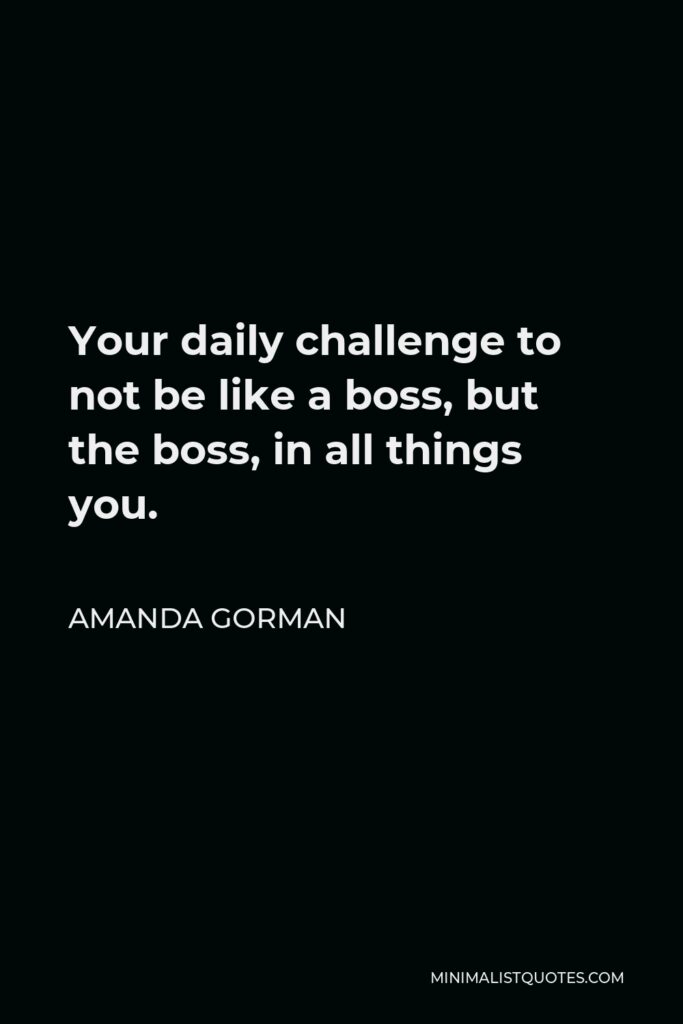

Your daily challenge to not be like a boss, but the boss, in all things you.
AMANDA GORMAN -





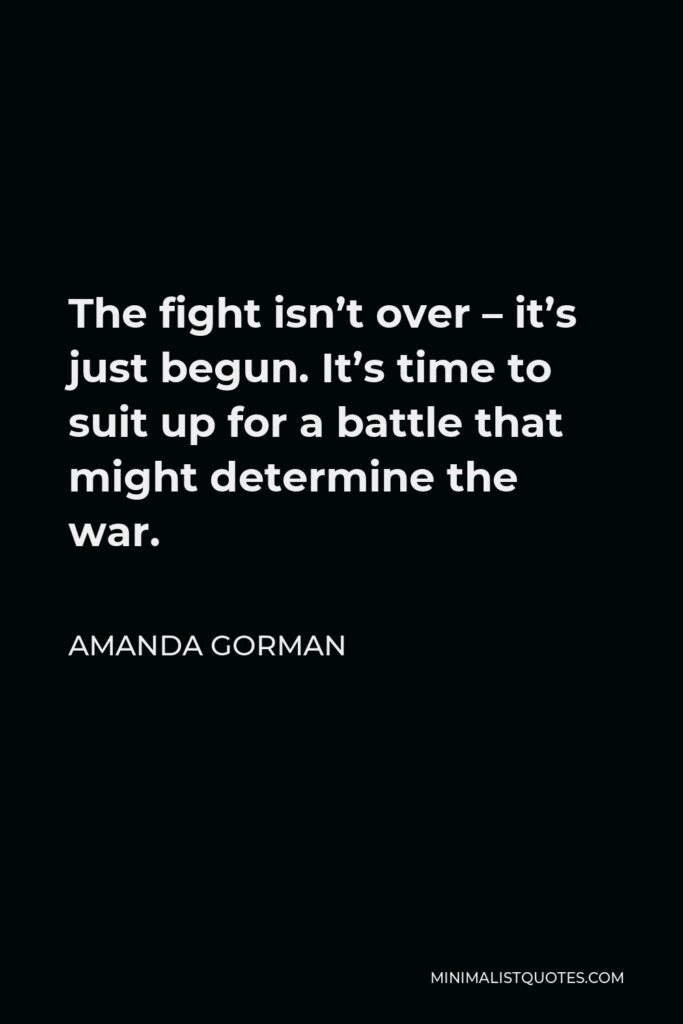

The fight isn’t over – it’s just begun. It’s time to suit up for a battle that might determine the war.
AMANDA GORMAN
